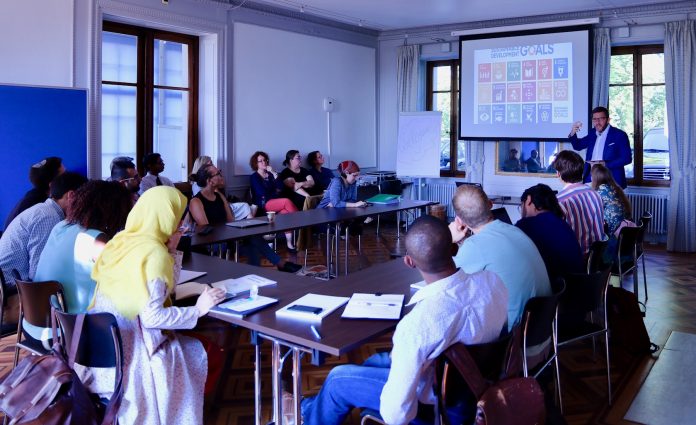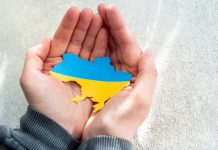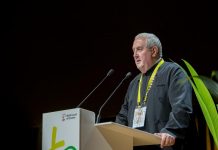This week the World Council of Churches Bossey Ecumenical Institute in Switzerland is ringing with scriptural sharing, research, and dialogue drawing together perspectives from Judaism, Christianity and Islam as students work to complete a Certificate of Advanced Studies (CAS) in Interreligious Studies.
The program of study has two components, a distance learning session from 2-22 July, then a residential learning segment that runs 23 July to 10 August.
Bossey is the World Council of Churches (WCC) Ecumenical Institute, and the summer course is also accredited by the University of Geneva. The course is organized by the WCC in cooperation with Fondation de l’Entre-connaissance in Geneva and Fondation Racines et Sources in Geneva.
Students have come from Africa, Asia, the Caribbean, Europe, the Middle East, and North America.
Rev. Dr Benjamin Simon, professor of Ecumenical Missiology at the Ecumenical Institute in Bossey, welcomed students to the institute.
“Every year we want to not only learn about the other religions and the faith of our neighbours; this is done by mutual encounter, amongst the students but also with the contributors of the religions we are talking about,” said Simon. “Only through encounter and learning from each other, can we become bridge builders between one another.”
Dr Sophie Huber Kodbaye, director of University of Geneva’s Center for Continuing and Distance Education, said that the CAS in Interreligious Studies is part of a trend at the University of Geneva to offer increasingly innovative and relevant continuing education programmes. “The University of Geneva is getting closer to international Geneva and to the world,” she said.
Rev. Fr Lawrence Iwuamadi, dean of the Ecumenical Institute in Bossey, said that the institute has always tried to interpret the vision of the WCC. “We need to work with people of good will and with people of other faiths,” he said. “Our hope is that these young women and men will leave not diluting their identities but seeing perspectives other than their own.”
This year, the CAS in Interreligious Studies is focusing on the role of religions in reaching the Sustainable Development Goals (SDGs), a collection of 17 global goals set by the United Nations.
Only a few years ago, the UN, government leaders, and non-governmental organizations discovered the benefit of cooperating with faith-based communities and religions in general to achieve the SDGs, said Simon. “Religions are at the grassroots level of the people, they speak their language and do know existential questions which turmoil the people.”
World Council of Churches, oikoumene.org















